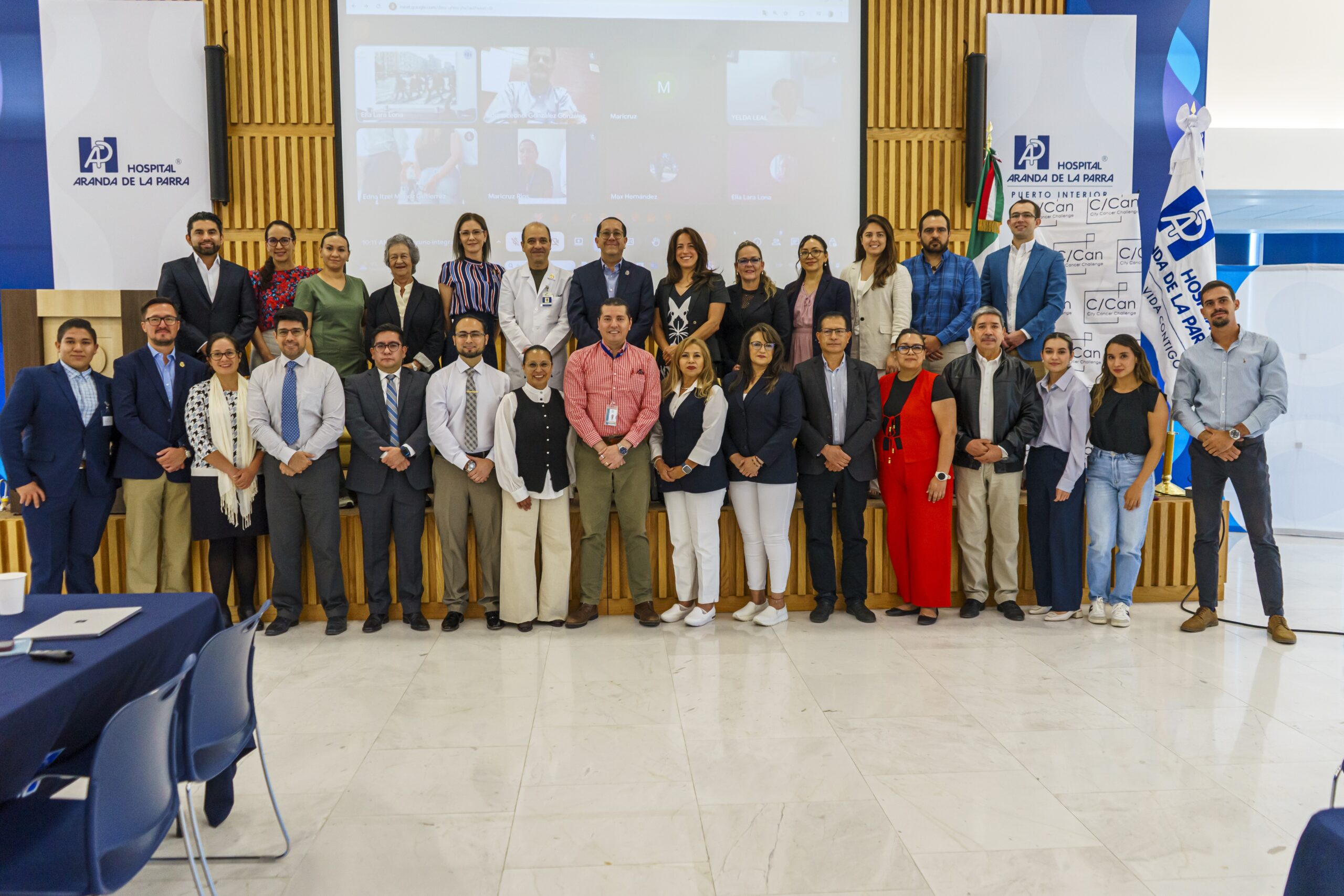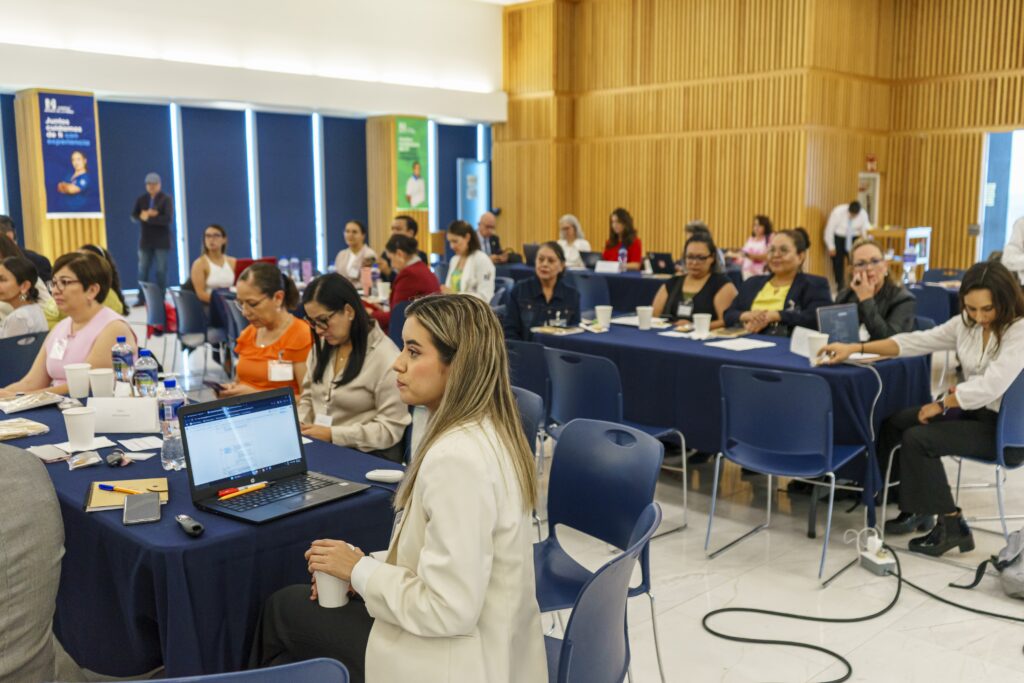
Where you live and who you are shouldn’t determine the quality of care you receive.
At City Cancer Challenge (C/Can), we work hand-in-hand with cities to strengthen healthcare systems in low- and middle-income countries (LMICs) from the ground up. This enables local institutions to strengthen their capacity and capabilities to deliver quality cancer care for everyone, everywhere. The recent Patient Navigation Programme Development Workshop, held at Mexico’s National Cancer Institute (INCan) on June 10–11, 2025, is a clear example of this mission in action.
Building a model for navigation in cancer care
The two-day workshop, which was supported by National Cancer Institute of Mexico (INCan), the National Institute of Nutrition ‘Salvador Zubirán’ (INNSZ), the American Cancer Society through Navigation Patient International (NPI), and C/Can, brought together 36 participants including doctors, nurses, social workers, and volunteer navigators. The group’s goal: to design, co-create and implement sustainable patient navigation programmes tailored to the Mexican context, beginning with women’s cancers.
Patient navigation is a crucial component of equitable cancer care. It ensures that patients do not get lost in complex care pathways, helps them overcome sociocultural, logistical and financial barriers, and most importantly for the patient, it promotes continuity and adherence to treatment. Crucially, it ensures that the patient journey is recognised and addressed. By integrating navigation into institutional processes, healthcare systems become more patient-centred, efficient, and cognisant of the human, often emotional journey of patients with cancer.
We identified many needs that patients reported not receiving support for such as guidance on transportation, medical treatment, lodging, nutrition, legal, and financial advice. These expressed needs became the foundation for this project.
Leticia Martinez López – State Coordination of Social Work, Health Secretariat of Guanajuato.
A collaborative journey towards systemic change
During the workshop, participants came together from eight institutions including the Secretaría de Salud de Guanajuato, IMSS UMAE 1 from León, INCan, INNSZ, Hospital Manuel Gea González, Hospital Ajusco Medio, and INER. Working in teams, participants designed preliminary navigation programmes for their respective hospitals.
Through interactive sessions and case-based discussions, participants explored:
- The fundamentals and evolution of patient navigation
- Best practices and models from Mexico and Latin America
- Policy and sustainability considerations for implementation
- Appropriate tools, workflows, and indicators that measure success
By the end of the workshop, each institution had drafted a tailored navigation plan ready for further refinement and integration into its cancer care services. Importantly, participants agreed that navigation is a fundamental process in cancer care and one that ensures no patient is left behind on their journey through cancer diagnosis, treatment, and recovery.

United for patients: shaping a community of practice
One of the most significant outcomes was the creation of a navigation ‘community of practice’. This community serves as a platform where institutions, hospitals, and professionals across Mexico can collaborate, share experiences, exchange learnings, and collectively strengthen the role of patient navigation in their efforts to improve national cancer control.
As one of the participants in the training reflected:
The workshop opened up the big picture of what can be done in the hospital and ultimately how we can improve existing actions and find partnerships that help strengthen our programme.
This enthusiasm and sense of shared purpose are central to C/Can’s city-driven model. We believe that local action drives global change. By connecting and empowering local leaders, we can deliver healthcare solutions that not only work today but can be scaled for tomorrow.
Navigation goes beyond case management or scheduling support. It has a humanistic, individualised focus to overcome patient barriers. For instance, having doctors, operating rooms, and medications is useless if a patient cannot physically access them. Navigation ensures patients receive care despite mobility, literacy, or socioeconomic barriers.
Eduardo Arturo Limón Rodríguez. Deputy Medical Director at the General Hospital of León, Guanajuato.
Next Steps: From Prototype to Practice
In the coming months, C/Can and international experts will continue working alongside participating institutions to refine their cancer care navigation models and prepare for implementation. The navigation community of practice will play a key role in fostering collaboration and continuous learning ensuring that the insights from this initiative drive further work beyond the extent of the initial programme. At the same time, strong advocacy efforts will be essential to recognise the vital role of patient navigators and how they can strengthen health systems. By building this level of governmental, administrative, and institutional support, these programmes have a higher opportunity to become sustainable and garner the visibility needed to ensure lasting impact.
This programme is not just about system design; it’s about human connection. It’s about building trust, breaking down barriers, and ensuring that patients in limited resource-settings feel seen, supported, and guided at every step of their journey.
Reimagining Cancer Care, City by City
At C/Can, we’re transforming cancer care in LMICs from the ground up. City by city, system by system. Initiatives like the Patient Navigation Programme show how locally led innovation can ripple outwards, supporting national policy development and inspiring global action.
Knowing that we can make a difference, even in one life, makes all the effort and work in these cancer projects worthwhile.
Claudia Karina Anaya – Secretaria de Salud de Guanajuato.
We know it works. And we know we can’t do it alone.
This C/Can initiative is supported by Global Focus on Cancer (US charitable organization supported by Eli Lilly and Company), as part of C/Can Women and Health strategy, in addition to support from implementation partners, including healthcare ministries and local governments. The work reflects a shared vision to ensure that every patient, no matter where they live, has access to timely, quality cancer care.
Join us in shaping a future where quality cancer care is accessible to everyone, everywhere.





